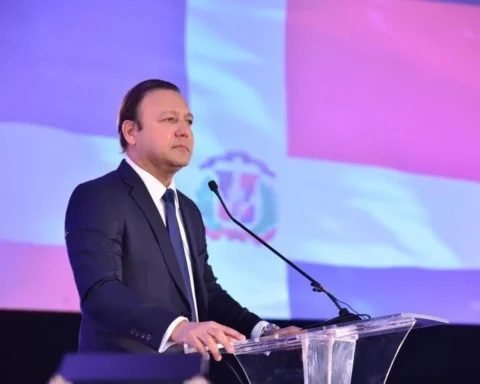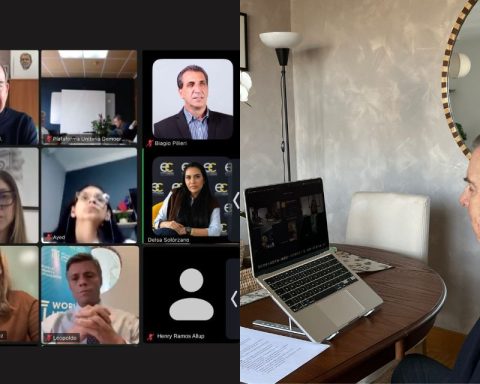L
the elections The French legislative elections have been an example of how the politics of fear works. The call to create a cordon sanitaire to prevent the formation of a far-right government has proven effective, hiding a less glamorous reality. If in the short term it slows down the reactionary drift, it reveals cordon sanitaires that are rooted in principle: the refusal to reverse the path of liberal reforms carried out over four decades, initiated in 1981 by the socialist party and François Mitterrand at the head. These reforms were deepened under the right-wing presidencies of Jacques Chirac and Nicolas Sarkozy. The triumph of the socialist, François Hollande, did not change course. Today, the president of the republic, Emmanuel Macron, recreates them, making use of the greatest violence and police repression that can be remembered so far in the 21st century, be it yellow vests, unemployed workers, immigrants or youth. Protest is criminalized. For socialists and the right, there is no turning back from the implementation of the market society.
The proposal launched by the leader of La France Insoumise, Jean-Luc Mélenchon, announcing the resignation of his candidates in favour of those who had a better chance of being elected, avoiding splitting the vote and thus the victory of the extreme right, consolidated the Popular Front. The strategy bore fruit. In the second round, the candidates of National Rally were pushed into third place. Having achieved their objective, the Socialist Party, the Greens-Ecologists, the Communist Party and the other forces that make up the Popular Front have thrown down the gauntlet: Jean-Luc Mélenchon, leader of La France Insoumise, cannot be a candidate for Prime Minister. They are hiding behind his radical and ideological extreme leftist nature. In fact, this position is a demonstration of the true red line. For the articulators of this proposal, Marine Le Pen and Jean-Luc Mélenchon are one and the same. Therefore, it is necessary to impose moderation and responsibility. The words of the captain of the French football team Kylian Mbappé, uttered during his participation in the European Championship, cannot be interpreted in any other way. He literally said: “I am against extremes. I think there are people who are not aware of what is happening. I try to give a voice to those people of my generation (…) young people can make a difference and extremes are knocking on the door (…) young people, go and vote.” It couldn’t be clearer, the sensible vote was represented by the figure of Emmanuel Macron. And a few days later in a second appearance, he said: “I think that more than ever we need to go and vote. This is really urgent. We cannot leave the country in the hands of these people, let’s hope that they vote for the good side (…) we have seen the results, it is catastrophic.” His reflections are praiseworthy; amidst the complicit silence of many athletes, his courage is beyond doubt. But he speaks of extremes, in the plural, not of the extreme right, as his teammate Marcus Thuram did.
Today, the French press, analysts and ideologues are rushing to support the discourse of political moderation. If the extreme right was defeated at the polls, it is now time to confront the extreme left. Disqualifications demonising Mélenchon and the political programme of France Insoumise are the order of the day. The caricatures of France Insoumise’s programme are constant, such as the call for a Constituent Assembly or the repeal of the labour reform. They are branded as anti-European when they ask to review the treaties signed with the Transatlantic Partnership for Trade and Investment. Likewise, they are branded as crazy when they demand an increase in the minimum net wage to 1,326 euros for 35 hours a week or their proposals for regularising immigration. Their demands to guarantee a decent life are considered part of an extravagant and totalitarian project.
The newspaper The country On June 26, 2011, the French correspondent Marc Bassets published an interview with the octogenarian Nazi-hunting couple Serge Klarsfeld and Beate Klarsfeld. The couple had obtained the extradition of Klaus Barbie, the butcher from Lyon. However, their statements, referring to the current situation, are still astonishing: “The Popular Front is more dangerous… and we tell people (…) to vote for the National Rally (…) I don’t care where the party comes from (…) It’s not the National Front. It’s the National Rally.” For the Nazi-hunters, France Insoumise and its leader Jean-Luc Mélenchon represents an openly anti-Zionist, anti-Semitic party
. They are the danger. Thus, they support the extreme right parties because they have become pro-Jewish and pro-Israeli.” In this sense, they say they share with Marine Le Pen her “distrust of a part of the Muslim population that does not accept the laws of the republic and would like to impose those of the sharia (…) Our priority is not social transformation, social progress, etc. After the Shoah, our priority is the fate of the Jews.” A whole letter of intent. Killing Gazans is on their agenda. But are there really two extremes? In Western culture we should stick to the only possible one: capitalism with a human face or savage capitalism. This is why they are united against France Insoumise. . For the sensible and moderate on the left and right, Jean-Luc Mélenchon is the problem. Ready for sentencing.
















